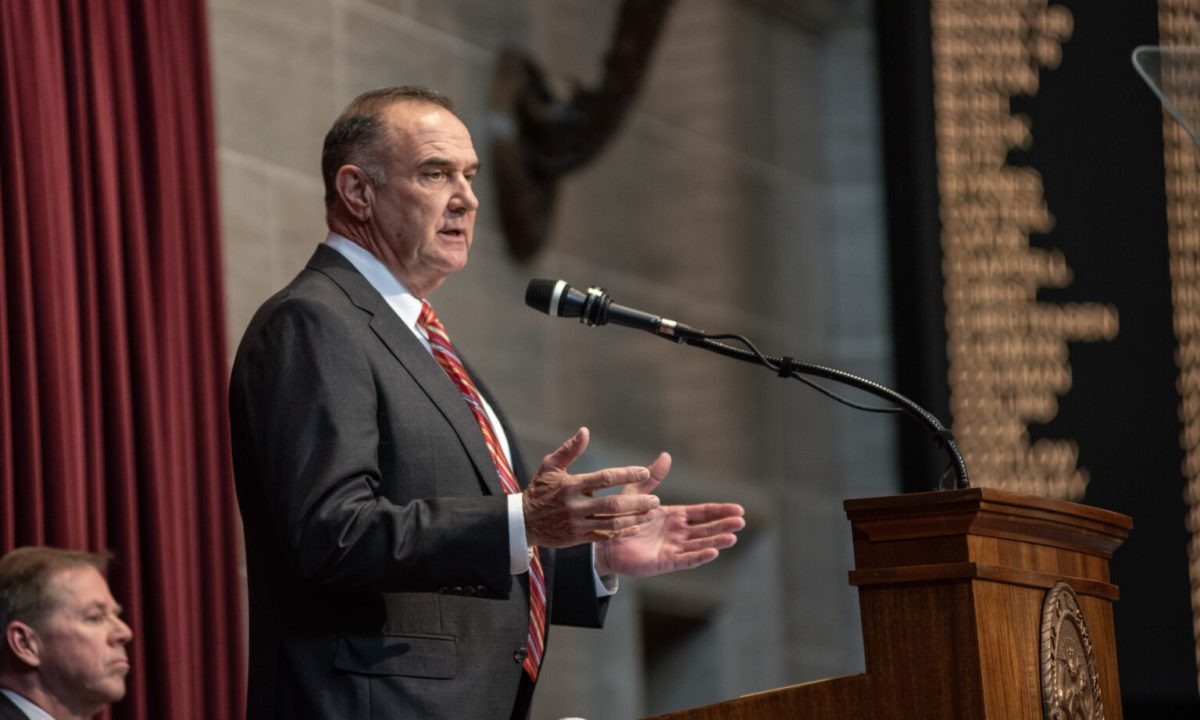Federal Changes
President Donald Trump signed an executive order freezing federal grants, many of which are designated for K-12 schools, on Tuesday, Jan. 28. While this freeze was soon blocked by a federal judge, it leaves the future for federal funds uncertain.
Cyndee Byous, chief financial officer for the district, said less than 4% of the district’s operating funds come from federal sources.
The majority of the district’s federal funding is Title I, Title II, and Title III funding under The Elementary and Secondary Education Act (ESEA). Title I funding provides students experiencing economic deprivation with additional support, Title II supports the quality and effectiveness of teachers and school administrators, and Title III supports the English Language Learners (ESOL) Program, Byous said.
“It will cause us to reprioritize some things in our budget, but I don’t believe that it will cause us to have to stop any services that we’re currently giving to students,” Byous said.
Keri Skeeters, director of curriculum and professional development, said the district has not been notified of any permanent changes to federal funding.
“We are on alert that that could potentially happen,” Skeeters said. “We currently have access to our federal program funding, and we anticipate we would have it again next year unless something changes between now and then.”
State Funding
The vast majority of funding comes from state and local sources, Byous said, so the changes at the state level are having a much bigger impact on the district.
The state adequacy target is the amount of money per pupil the state provides school districts. The State Board of Education adopted the Department of Elementary and Secondary Education’s (DESE’s) Fiscal Year 2026 budget request in September 2024, with the state adequacy target set to increase from $6,760 to $7,145.
Governor Mike Kehoe then released his budget recommendations on Jan. 28 during his State of the State Address, which did not include the $300 million needed to fully fund the adequacy target recalculation.
Dan Haug, state budget director, discussed these budget recommendations in a meeting with chief financial officers of school districts in the St. Louis Metro area.
“School districts across the state, including Rockwood, have already developed fiscal year 2025-2026 budgets based on that funding going up to $7,145,” Byous said.
If passed, Byous said that loss would immediately pull more than $7 million out of the district’s operating budget for this coming school year. Over the next three years, it would be about $21.6 million.
“It’s the biggest hit we’ve had to take in at least 10 years,” Byous said.
Byous said the finance department presented a preliminary budget to the Board of Education in December. They anticipate being able to retain the same budget expenditures as presented in December to the Board of Education, but this will require some deficit spending.
“The Rockwood School District has a strong financial position right now, but continued cuts like this are going to have a serious impact,” Byous said. “When we have to project deficit spending, that means we need to start looking at ways to turn that around and change that trajectory, and we don’t know yet what all the impacts of that might be.”
Mallory McGowin, DESE chief communications officer, said it is still very early in a much longer budget process that happens each year. The state budget will not be finalized by the legislature until May 9; the governor then has until late June to sign it.
“This is the phase of the budget process that we’ve moved into now where the House and Senate review the department requests, the governor’s request, ask a number of questions at different budget hearings, and ultimately compile and agree on a budget,” McGowin said.
Student Perspective
Lainee Norton, junior, has a parent in education. Norton said she has always had a passion for working with children and plans to become a teacher herself.
“I’ve been around that my whole life, and I’m interested in going into early childhood,” Norton said.
Norton said cuts to education funding would likely have a large impact on learning materials.
“We have textbooks, Chromebooks and in band, they buy instruments,” Norton said. “Not only would it impact teacher’s pay and salaries, but it would directly interfere with the students’ learning.”
Though Norton has wanted to be a teacher for as long as she can remember, she said recent changes have prompted her to examine alternate career options with less volatility.





Fox • Mar 31, 2025 at 12:12 PM
I see. Very interesting. Thanks!
Michael • Mar 29, 2025 at 5:39 PM
I would be curious to read about the impact that the closure of the Department of Education might be having on Rockwood’s special education programs. It’s my understanding that federal funding plays a huge role in this area